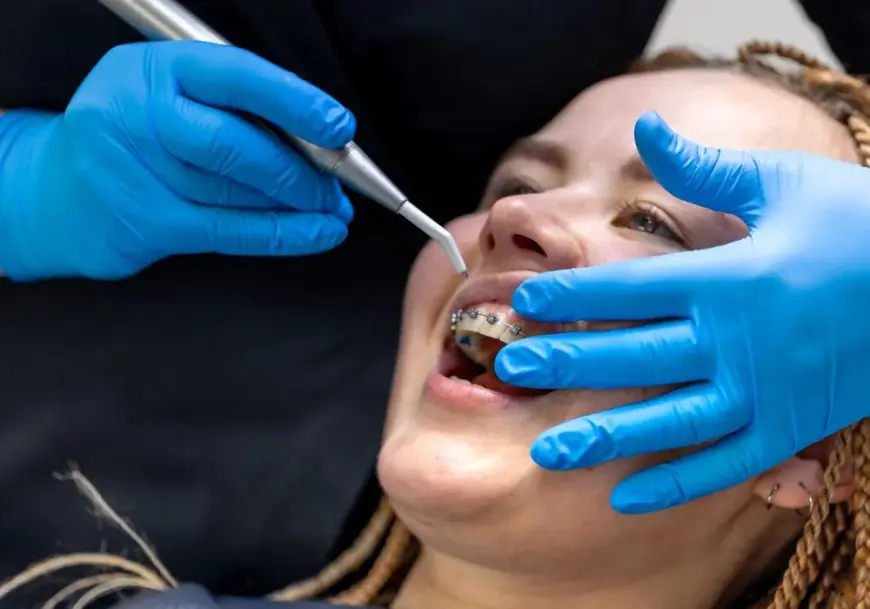How to Adjust to Wearing a Dental Retainer Comfortably
Dental Retainer

Adjusting to wearing a dental retainer can be a challenging process for many patients, especially those new to orthodontic appliances. For individuals with dental retainers in Dubai, where busy lifestyles and climate factors can add to discomfort, learning how to adapt quickly is key to long-term success. This guide offers practical tips and strategies to help you wear your retainer comfortably while maintaining oral health.
Understanding the Initial Discomfort and What to Expect:
When you first start wearing a dental retainer, it’s normal to experience some tightness, slight soreness, or a feeling of pressure on your teeth and gums. These sensations occur as your mouth adjusts to the appliance and indicate that the retainer is working. Other common issues include mild speech difficulties or increased saliva production. Most discomfort should subside within a few days to a couple of weeks as your tissues adapt.
Tips for Minimizing Soreness and Pressure:
To ease soreness and pressure when adjusting to your retainer, consider the following:
-
Wear the retainer exactly as prescribed by your orthodontist to avoid prolonging discomfort.
-
Use over-the-counter pain relievers like ibuprofen for temporary relief if needed.
-
Apply a cold compress to your cheeks to reduce inflammation and numb tender areas.
-
Maintain good oral hygiene to prevent irritation caused by plaque buildup.
-
Avoid eating sticky or hard foods that can exacerbate discomfort or damage the retainer.
These simple steps can make the adjustment period much more manageable.
Improving Speech While Wearing a Retainer:
Speech changes are common when first wearing a retainer but generally improve quickly. To adapt your speech:
-
Practice speaking aloud, reading, or singing to get used to the feeling of the retainer.
-
Speak slowly and clearly to help your mouth adjust to new movements.
-
Try tongue exercises such as touching the roof of your mouth or the back of your teeth.
-
Be patient; most people regain normal speech within a week or two.
Consistent practice helps overcome initial speech challenges effectively.
Maintaining Comfort During Eating and Drinking:
Eating with a retainer requires some adaptation but following these tips can help:
-
Remove removable retainers while eating to prevent damage or food getting trapped.
-
Avoid chewing sticky, hard, or very chewy foods that could dislodge or harm the retainer.
-
Rinse your mouth and clean your retainer after meals to avoid bacteria buildup.
-
Drink plenty of water to keep your mouth moist and comfortable.
For those with fixed retainers, focus on careful chewing and maintaining oral hygiene to avoid discomfort.
Best Practices for Cleaning and Caring for Your Retainer:
Proper cleaning is essential for comfort and hygiene. To care for your retainer:
-
Clean it daily using a soft-bristled toothbrush and mild, fragrance-free soap.
-
Avoid using toothpaste, which can be abrasive and damage the retainer surface.
-
Soak the retainer occasionally in cleaning tablets or a vinegar-water solution to remove buildup.
-
Always rinse thoroughly with lukewarm water before placing it back in your mouth.
-
Store your retainer in a ventilated case when not in use to prevent bacteria growth.
A clean retainer feels better and reduces the risk of irritation.
Dealing With Common Retainer Issues and When to See a Dentist:
Occasionally, you may experience problems with your retainer such as:
-
Persistent pain or sores that don’t improve.
-
Retainer feeling loose or not fitting properly.
-
Cracks or visible damage to the retainer.
-
Difficulty removing or inserting the retainer.
If you encounter any of these issues, contact your orthodontist promptly. Timely professional care can resolve problems before they affect your treatment outcomes or comfort.
Psychological Tips for Adjusting to Retainer Wear:
Adapting mentally is just as important as physical adjustment. Consider these psychological strategies:
-
Set reminders or alarms to build a consistent wearing routine.
-
Keep a positive mindset, reminding yourself of the long-term benefits.
-
Share your experiences with others who wear retainers for mutual support.
-
Celebrate milestones, such as completing the first week or month without discomfort.
Developing a supportive mindset encourages consistent retainer use and successful adaptation.
Final Thoughts:
Adjusting to wearing dental retainers comfortably is a process that takes time, patience, and proper care. For individuals with dental retainers in Dubai, following the tips above—from managing soreness and improving speech to maintaining hygiene and seeking professional help—can make the transition smoother and more comfortable. Embracing these best practices will help protect your orthodontic investment and ensure a beautiful, lasting smile.
What's Your Reaction?
 Like
0
Like
0
 Dislike
0
Dislike
0
 Love
0
Love
0
 Funny
0
Funny
0
 Angry
0
Angry
0
 Sad
0
Sad
0
 Wow
0
Wow
0


















































